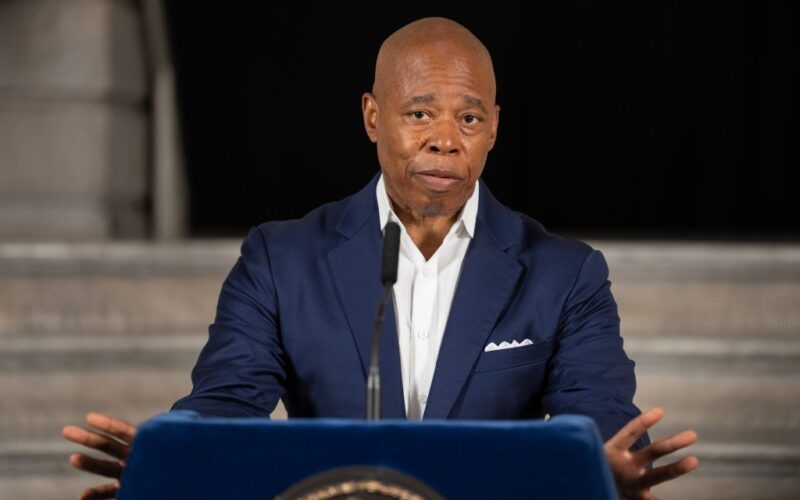As City Council members consider whether to override Mayor Adams’ veto of a grocery delivery pay standard, members should discount Instacart’s disingenuous arguments and instead look to the latest data on the effectiveness of the restaurant delivery pay standard.
Like Chicken Little, Instacart is panicking over the specter of higher consumer costs for grocery delivery. The reality is that consumers who order restaurant delivery are paying no more in app-company fees and tips than they were before the restaurant delivery pay standard took effect.
Yes, tips for delivery workers have declined but they have been more than made up by the increase in pay required from the app companies. For each delivery, the companies are now paying workers more than twice ($8.05 vs. $3.87) what they were previously, and total worker earnings per delivery (company pay + tips) is 17% higher ($9.07 vs. $7.73).
In effect, consumers are tipping less because the apps are charging them more but workers are taking home more and consumers are not paying any more than before.
And, given that there’s now pressure on the companies to more efficiently schedule workers, hourly pay for delivery workers has more than tripled (up from $5.60 to $19.72, +252%). Note that all comparisons are the latest four quarters through the first quarter 2025 compared to the four quarters prior to the implementation of the pay standard.
As with New York City’s nation-leading restaurant delivery app worker pay standard, the key to the success of the grocery delivery worker pay standard is for the giant app delivery companies (Instacart, Amazon, Uber, and DoorDash) to rein in their profit lust so that workers can be paid fairly.
In restaurant delivery, the gross “take” (i.e., profits) per order declined by only a dollar (from $6.30 pre-standard to $5.28 under the standard). That 16% decline in the app companies’ take made possible a 17% increase in worker total earnings (pay + tips) per order.
In the local rideshare industry, Uber and Lyft have such market power that over the past six years they have increased their take much faster than driver pay per trip, although the Taxi and Limousine Commission’s pay standard has ensured that driver pay and expenses have kept pace with inflation.
The only way to effectively rein in the profit lust of giant grocery delivery app companies is for the City Council to require that workers be paid fairly. The grocery delivery business is booming. There’s no reason it can’t continue to do so provided the app delivery companies hold the line on consumer fees and finance decent worker pay by lightening their profits. The latest data show that restaurant delivery companies still pocket an average of $5.28 per order after meeting the pay standard.
Instacart competes for market share with Uber and DoorDash but no single company will be put at a disadvantage by an industry-wide pay standard. Shareholders have bid up stock prices for these companies much more than the broader market over the past year precisely because they are richly profitable and have strong prospects for continued growth. They can certainly afford to share some of their success with their workers. Morgan Stanley estimates Instacart’s 2025 gross profit margin at 75%.
The legislation the mayor vetoed, Intro 1135, closes what has become known as the “Instacart Loophole” that allows third-party delivery apps to pay their workers far below the $21.44 minimum pay standard for New York City’s 70,000 restaurant delivery workers.
The level is above the state minimum wage of $16.50 an hour since the app companies treat their workers as independent contractors to evade coverage by statutory employee protections. Independent contractors have to pay the employer share of Social Security and Medicare taxes and are not covered by unemployment insurance, workers’ compensation or paid family leave.
Without the enactment of Intro 1135, grocery delivery workers won’t be protected from avaricious companies paying them rock-bottom wages. In addition to overriding the mayor’s veto, the Council should also enact Intro 1332, sponsored by Council Finance Chair Justin Brannan, that would prevent the grocery delivery companies from locking workers out of the apps or deactivating them without just cause.
The restaurant delivery companies should be similarly restricted. The only reason companies lock out these app workers is that they fail to efficiently manage their workers. They then balk at paying workers for their time. Like spoiled children, they want their cake and to eat it, too.
Parrott is senior advisor at the Center for New York City Affairs at The New School.








